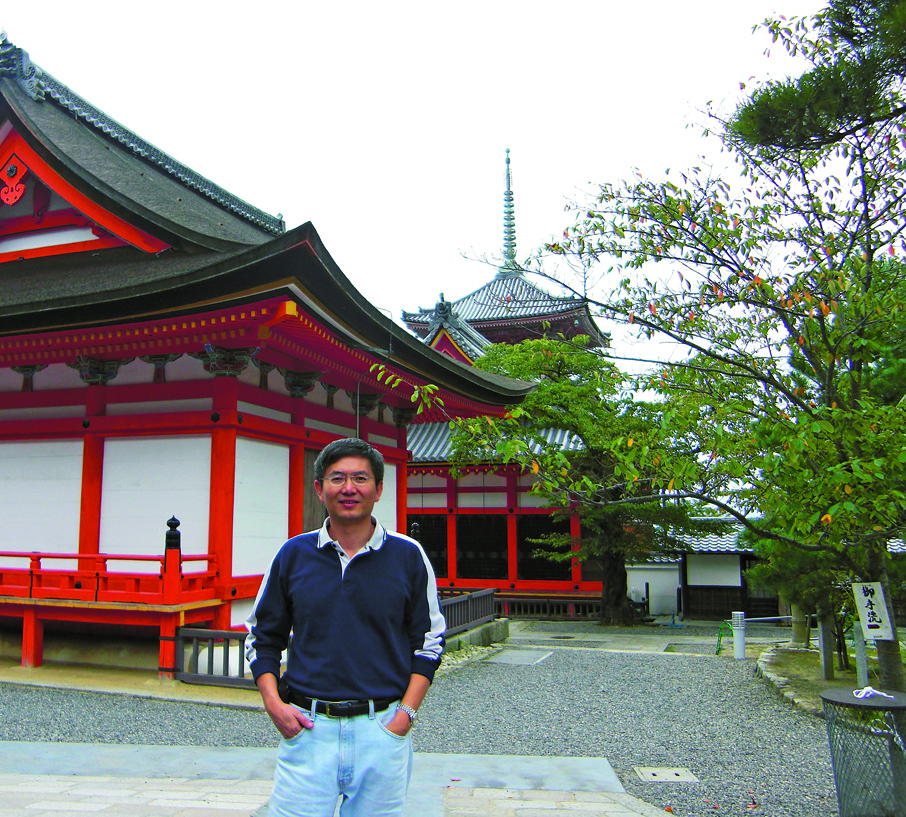Building Bridges Between China and the U.S.

When Ron Cai JD ’90 was a student at Xiamen University Law School in the early to mid-1980s, he served as an interpreter for Steve Kanter, professor of law, who was then a visiting Fulbright scholar. “Steve invited us to apply to Lewis & Clark Law School if we were interested in furthering our studies in the United States,” says Cai.
A few years later, Cai did just that.
After graduating with honors from the law school, he worked for the Portland law firm of Tonkon Torp. He then returned to China, where he is now the partner-in-charge of Davis Wright Tremaine’s law office in Shanghai. The Chronicle recently tapped Cai for his perspective on U.S.-China business relations.
How did you become interested in international business?
When I was in high school, Xiamen, my hometown, was declared a Special Economic Zone for Chinese reform. Xiamen became one of the most open cities in China for foreign trade and investment. I had a law professor who was one of China’s first visiting scholars to the U.S., and he brought back many law books from Harvard. I was fascinated by the U.S. legal system and wanted to learn about it and use my skills to help bilateral trade and investment.
Who are your law firm’s clients?
Most of them are U.S. companies. My office has represented AIG, Bloomberg, DuPont, GE, Marriott, Microsoft, Nike, Starbucks, and others. About onethird are from the Pacific Northwest. We also help Chinese companies doing business in the United States.
What types of services do you offer?
We help our corporate clients establish operations in China, handle mergers and acquisitions, and assist with daily operational issues. We also help clients plan and execute their exit strategies.
How would you describe the current legal and policy environment for doing business in China?
Legislation has improved substantially in the past 30 years; however, the lack of enforcement is a serious concern. The judicial corruption is intolerable. It is becoming more and more difficult for small businesses to succeed. Ironically, since China joined the World Trade Organization, the political environment is actually less friendly toward foreign investors. The government recognizes these problems. I am hopeful that these issues can be resolved, or at least eased.
How does the culture of relationship drive business?
It is very important. But the culture is changing, and people are more business-focused. Given that China is a country with 1.3 billion people, it’s a challenge to develop relationships with all the right people all the time.
How are Chinese labor practices evolving?
Instead of beefing up enforcement, the government is focused on legislation. Unfortunately, recent changes in Chinese labor law are punishing good corporate citizens and raising labor costs. Hundreds of millions of migrant workers, domestic helpers, and contract workers at government-owned and privately owned companies are still sorely in need of labor protections.
What are the most dramatic changes you’ve witnessed in U.S.-China business relations during your career?
Twenty years ago, China looked to the U.S. for inspiration, freedom, and prosperity. Over the past decade, I’ve seen more tension and mistrust between the U.S. and China—even as economic ties have increased. Part of the problem is that the Chinese government, in an effort to hang on to its power, fans anti-U.S. sentiments. But a bigger problem is that the U.S. has made decisions and policies that people in other countries have come to resent.
What changes could strengthen U.S.-China business ties?
There are now hundreds of thousands of Chinese students in the United States. Tens of millions of young Chinese understand some English, and millions of them have had opportunities to travel overseas.
All of the young lawyers and staff in my office, some of whom have never been to the U.S., speak and write native-level English. I hope more young Americans can spend time in other countries to understand their cultures, particularly those of the important trading partners of the U.S., such as China, India, Japan, France, and Germany.
—Compiled by Pattie Pace
L&C Magazine is located in McAfee on the Undergraduate Campus.
MSC: 19
email magazine@lclark.edu
voice 503-768-7970
fax 503-768-7969
The L&C Magazine staff welcomes letters and emails from readers about topics covered in the magazine. Correspondence must include your name and location and may be edited.
L&C Magazine
Lewis & Clark
615 S. Palatine Hill Road
Portland OR 97219
More Stories

Fighting for Our Forests
As the planet warms, L&C community members defend forest health through research, policy, and frontline forest work.

Hired and Inspired
On social media, we asked: What was your most memorable campus job?”

First-Class Scholars
Lewis & Clark’s inaugural cohort of Posse Scholars graduates this spring, celebrating their success as student leaders and their readiness to create change beyond campus.

A Path with Purpose
For nearly two decades, Scott Fletcher, dean of the graduate school, has championed social justice and expanded the school’s impact, supporting faculty, staff, and students in service to the community.